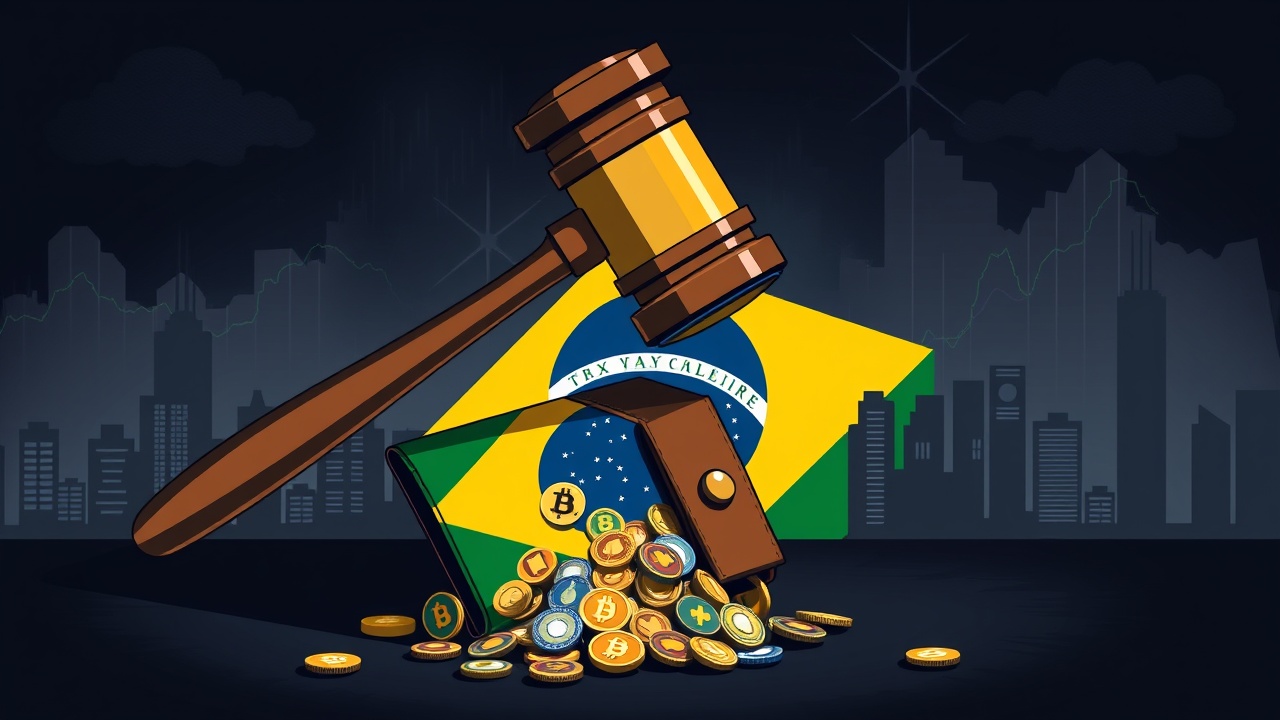Brazil’s New Cryptocurrency Tax Framework
In a significant shift for cryptocurrency taxation, Brazilian officials have unveiled a Provisional Measure that repeals the existing tax framework and implements a comprehensive tax regime targeting profits from digital assets. This new regulation, established on June 11 under Provisional Measure 1,303, mandates a uniform tax rate of 17.5% on all income generated from cryptocurrency trading and holdings, affecting not only assets stored within the country’s borders but also those kept in self-custody wallets and overseas.
Changes to Taxation on Cryptocurrency Gains
Previously, taxation on cryptocurrency gains was much more nuanced, only applying when profits exceeded 35,000 reais (approximately $6,320). Tax rates varied depending on the amount of profit, with thresholds that taxed income at 15% for profits up to 5 million reais and progressively higher rates for larger amounts, going up to 22% for gains exceeding 30 million reais (around $5,400,000).
Broadening the Taxable Activities
The newly introduced tax framework clarifies that it encompasses all income derived from transactions involving virtual assets, which include any financial dealings with cryptocurrencies used for payment or investment. This change broadens the scope of taxable activities to include those occurring in decentralized finance (DeFi), although details on enforcing taxation in these decentralized environments remain vague.
Tax Calculation and Future Considerations
Under the new regime, tax calculations will be performed quarterly, allowing traders the ability to offset prior losses against their taxable income. This measure aligns with ongoing discussions among lawmakers concerning an increase in the financial transaction tax, with considerations to incorporate crypto assets as part of the strategy to mitigate the impact of this tax hike on the cryptocurrency market and its participants.
Conclusion
As Brazil navigates the evolving landscape of cryptocurrency regulation, these changes signal a commitment to establishing a more structured approach to taxing the digital economy, reinforcing the government’s oversight of virtual currencies.




